Environmental and Resource Students and Faculty Attend the Academic Forum at the UNEP International Environmental Technology Centre in Japan
2025-04-23
Overseas Exchange | Environmental and Resource Students and Faculty Attend the Academic Forum at the UNEP International Environmental Technology Centre in Japan
To expand students' global vision, enhance academic exchanges, and promote the cultivation of international talents, from February 16 to 20, 2025, 15 undergraduate students from the School of Environmental and Resource Sciences, led by Associate Professor Li Yong and undergraduate counselor Wu Yuheng, traveled to Japan for academic exchanges. During this exchange, the students had the opportunity to engage in face-to-face interactions with faculty and students from the University of Tokyo and Osaka University. They also visited the UNEP International Environmental Technology Centre in Japan and participated in the UNEP Global Dialogue and Youth Day Forum. Through these activities, the students gained firsthand experience of the cutting-edge dynamics in international academia, enhanced their ability to participate in global issues, and accumulated valuable experience for their future career development and academic research.
UNEP Global Dialogue & Youth Day
From February 18 to 19, 2025, the delegation traveled to Japan to attend the UNEP-IETC Global Dialogue & Youth Day: Circular Economy Model of Waste Management hosted by the United Nations Environment Programme’s International Environmental Technology Centre (UNEP-IETC) in Osaka.
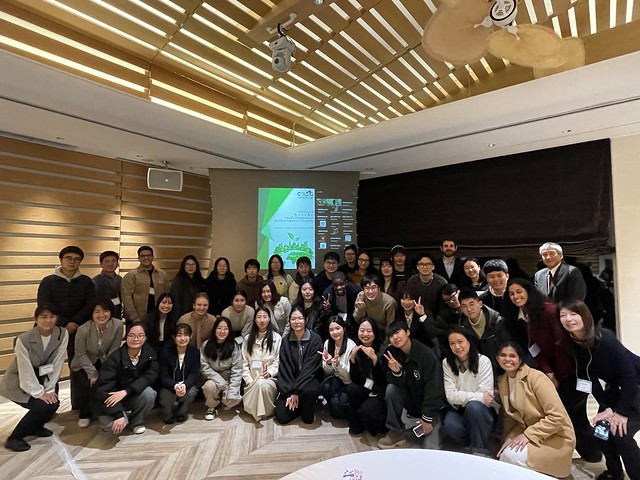
In recent years, the United Nations Environment Programme (UNEP) has been vigorously advocating the “Zero Waste” concept, which calls for reducing resource consumption and pollution emissions throughout the product life cycle. The International Environmental Technology Centre (IETC) of UNEP, located in Osaka, Japan, has been working with developing countries to implement sustainable solutions to environmental challenges, with a focus on holistic waste management. Through the Global Dialogue and Youth Day forums, IETC emphasizes that youth are a key force in addressing the environmental crisis. The aim is to provide young people with a platform to interact with policymakers and scientists, to inspire their contributions to the Sustainable Development Goals (SDGs), and to promote innovation in international environmental governance. This also provides a platform for intergenerational and cross-sectoral collaboration.
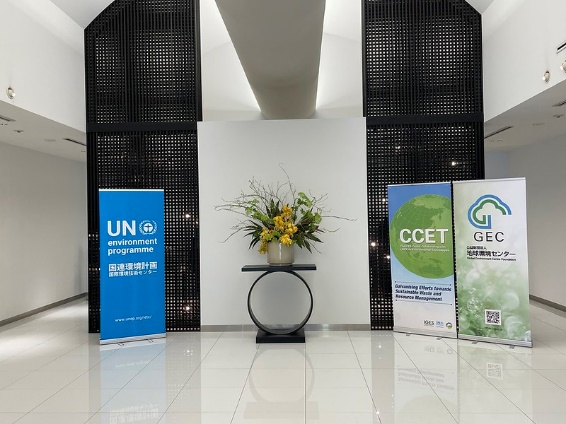
UNEP Global Dialogue
On the afternoon of February 18th, the participants listened attentively to the explanations and discussions on zero-waste policy management and circular economy models. They explored the possibilities of achieving effective economic cycles from an international perspective and delved into the roles and responsibilities of each component in the economic chain within the zero-waste concept.
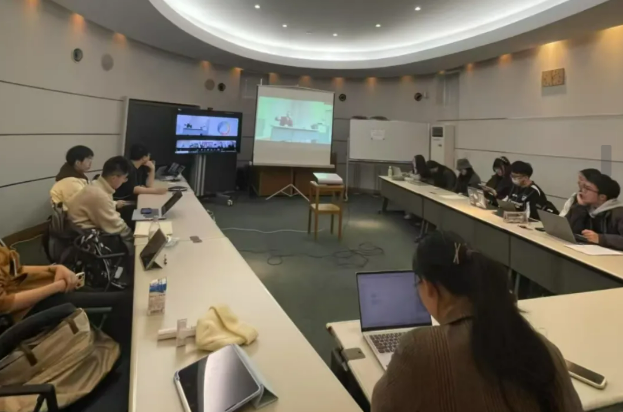
Youth Day
Student Presentations
On the morning of February 19th, three undergraduate students from the School of Environmental and Resource Sciences at Zhejiang University presented an exchange report titled “Activated Carbon Dispersion Adsorption & Concentrated Regeneration-Mode Design and Technical Support,” which received high praise.
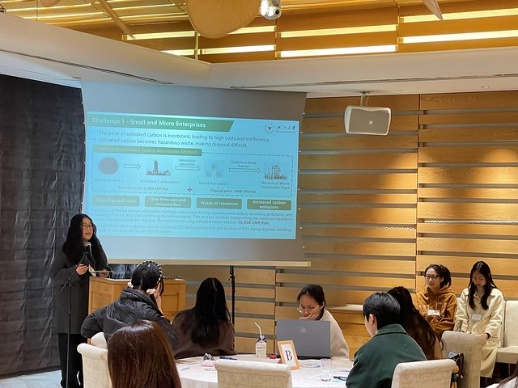
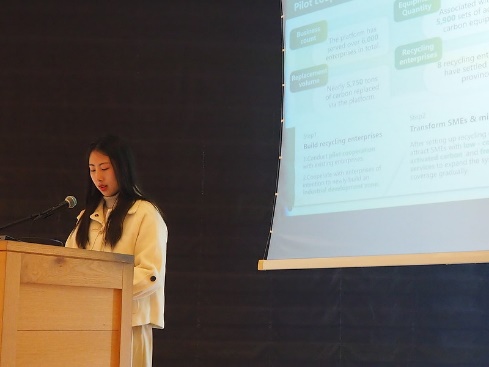
Collaborative discussions
During the group discussion session, undergraduate students were divided into five groups to engage in roundtable discussions and group cooperation with participants from universities in South Korea, Japan, and Tsinghua University. The theme was “Youth Leadership in the Circular Economy and Zero Waste.” Through active international and interdisciplinary exchanges, they jointly explored pathways and solutions to achieve zero-waste goals.
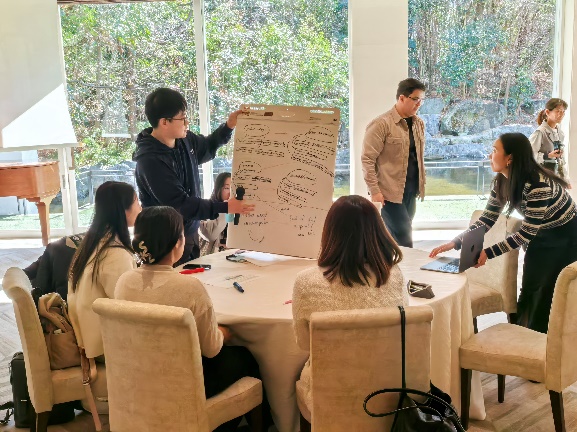
Listen to the report
On the afternoon of February 19th, the participants first listened to a report from UNICEF on the impact of plastic pollution on the environment and children’s health. They also engaged in the lively discussions conducted both offline and online by the Children and Youth Major Group (CYMG). These activities broadened their horizons and deepened their understanding of the important role of youth leadership in global waste management.
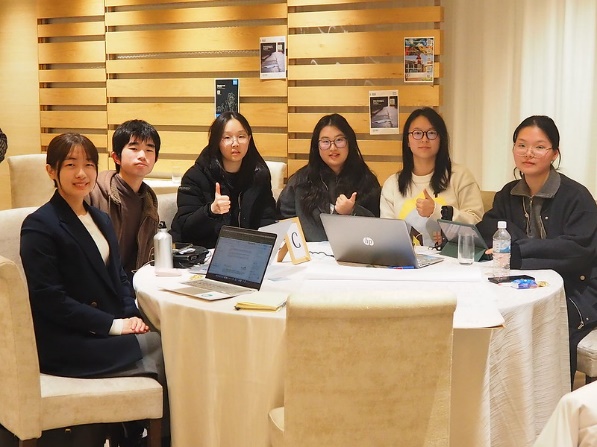
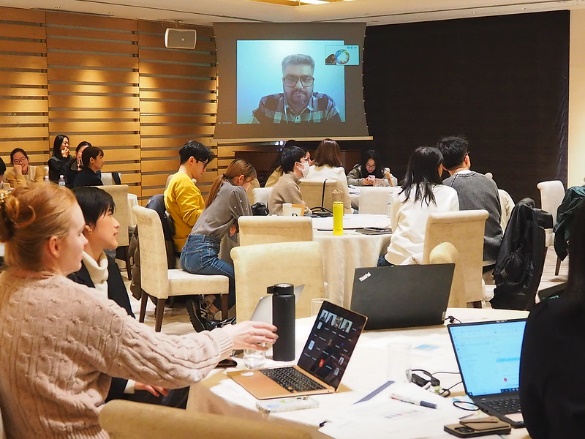
Drafting the Global Youth Statement
Finally, under the guidance of the session chairs, each group pooled their ideas and worked together to draft and revise the Global Youth Declaration. In a practical manner, they truly invested their thoughts and inspiration, contributing to the global pollution governance and the realization of the zero-waste concept.
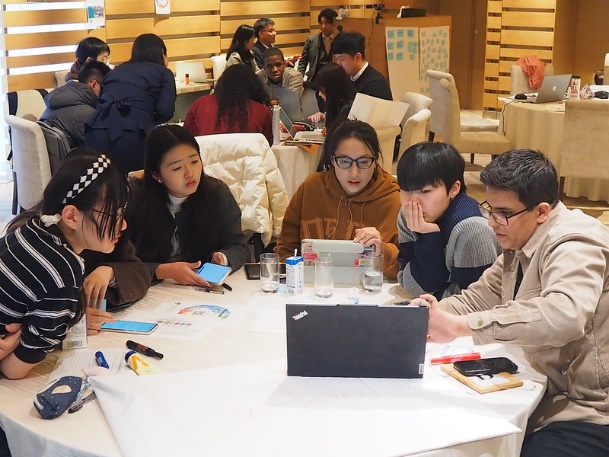
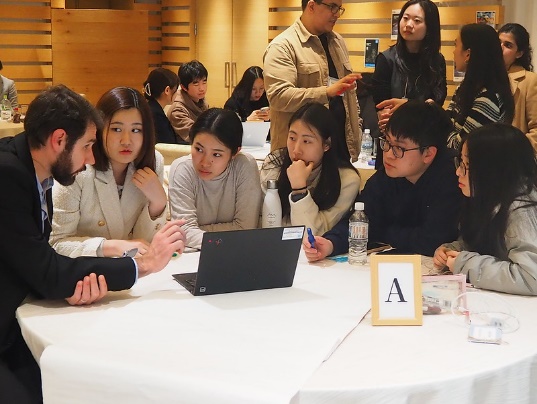
The UNEP Global Dialogue and Youth Day forum, held from February 17 to 19, 2025, in Osaka, Japan, focused on the circular economy model of waste management. The event aimed to bring together key stakeholders, including policymakers, industry leaders, academia, civil society, and youth, to discuss innovative strategies for advancing circular waste management. The forum emphasized the importance of youth leadership in driving sustainable development and highlighted the critical role of young people in shaping sustainable solutions. The discussions and activities during the event were designed to foster collaboration and develop actionable strategies to integrate sustainable practices across sectors, contributing to the global efforts towards a circular economy.

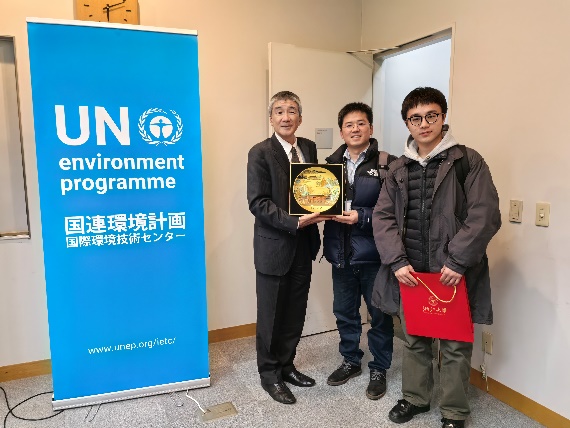
Alumni Visit
Wang Lei, a graduate of the Environmental Science major from the class of 2016, was fortunate to be one of the first batch of Chinese Youth Volunteers for the Overseas Service Program—United Nations Agencies Project during her undergraduate years. She served for half a year at the UNDP Eurasia Regional Office. Currently, she is interning at the UNEP International Environmental Technology Centre, participating in research projects on waste management under the circular economy.
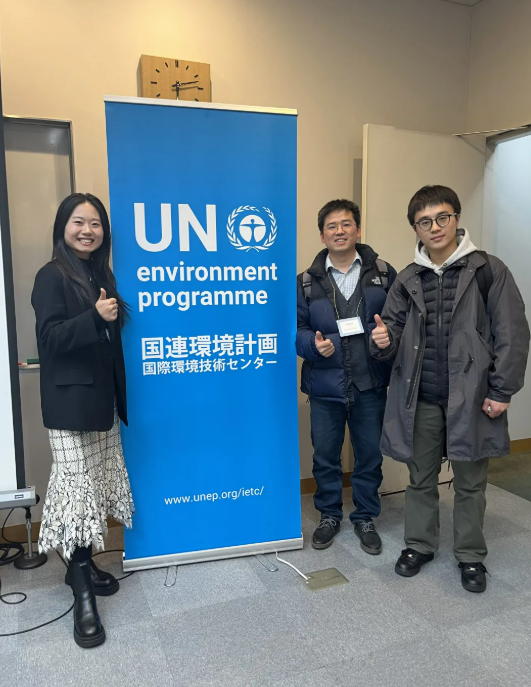
Reflections and Insights
Zhou Yiqun (Undergraduate Student, Class of 2022, Major in Agricultural Resources and Environment)
Participating in the UNEP Youth Day Forum was an extraordinary experience for me. During this event, I had the privilege of sharing my views with young representatives from around the world and listening to their insightful ideas. Particularly, when discussing the topic of “Circular Economy and Zero Waste” with group members from Japan and South Korea, I deeply felt the collision of ideas from different cultural backgrounds. Starting from practical cases in our respective countries, we delved into how to promote sustainable development in daily life.
Japan’s experience in waste sorting, South Korea’s resource recycling technology, and China’s green development philosophy all benefited me greatly. Through these exchanges, I realized that despite coming from different countries, we share common goals and responsibilities when facing global environmental issues.
This forum not only broadened my international perspective but also made me understand that the younger generation plays an important role in promoting global sustainable development. We have the responsibility to transform the concepts discussed in the forum into concrete actions, starting with small things around us, and contributing our own efforts to achieving the goals of a circular economy and zero waste.
Xu Ruixi (Undergraduate Student, Class of 2022, Major in Agricultural Resources and Environment)
My experience at the UNEP Global Dialogue and Youth Day Forum in Osaka was truly enlightening. During the forum, I engaged in in-depth discussions and presentations with students from South Korea, Japan, Tsinghua University, and other institutions. We collectively explored how youth innovation and leadership can drive the development of a circular economy and how to achieve efficient resource utilization and reduce waste generation. These discussions gave me a clearer understanding of the prospects and challenges of the circular economy and sparked my interest in continuing to explore this field.
In addition, I collaborated with my classmates on an exchange report about activated carbon regeneration. We shared our research progress on the application of activated carbon in environmental protection and its regeneration process, and exchanged ideas with other participants. Through this interaction, I not only learned about the research achievements of other teams but also enhanced my ability to express and think deeply in academic presentations.
Overall, the forum broadened my international perspective and made me keenly aware of the important role that youth play in global environmental protection and sustainable development. Through cooperation with students from different countries and regions, I not only gained knowledge and experience but also strengthened my sense of responsibility and mission for the future of environmental protection.
Zhang Ruoxi (Undergraduate Student, Class of 2021, Major in Agricultural Resources and Environment
Participating in the UNEP circular economy discussion has profoundly convinced me that agricultural waste management must shift from “disposal” to “recycling.” Mr. Carlos Silva Filho emphasized the concept of a “closed-loop of resources,” which calls for equal emphasis on technological innovation, policy guidance, and multi-party collaboration. For example, through extended producer responsibility and economic incentives, agricultural waste can be transformed into resources rather than pollutants. This requires the government to set rules, researchers to provide solutions, and enterprises to implement practices. In the future, agricultural sustainability is not only about technology but also about how to reconstruct the symbiotic relationship between humans and resources. As a student in the field of agricultural resources and environment, I have come to realize that the circular economy is not just a technical issue but a philosophical framework for reshaping the relationship between humans and nature. In the future, we need to adopt a more macroscopic perspective to find ecological balance points in the flow of resources and allow every bit of “waste” to re-enter the eternal rhythm of the Earth’s material cycle.
